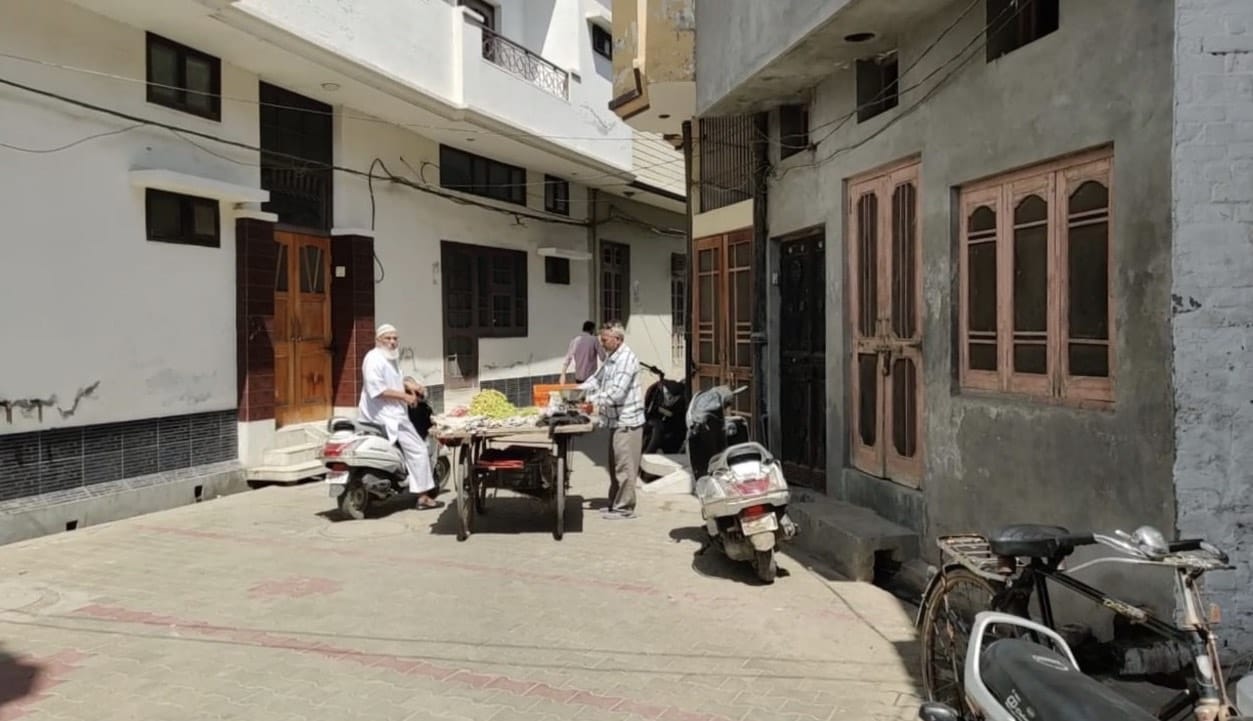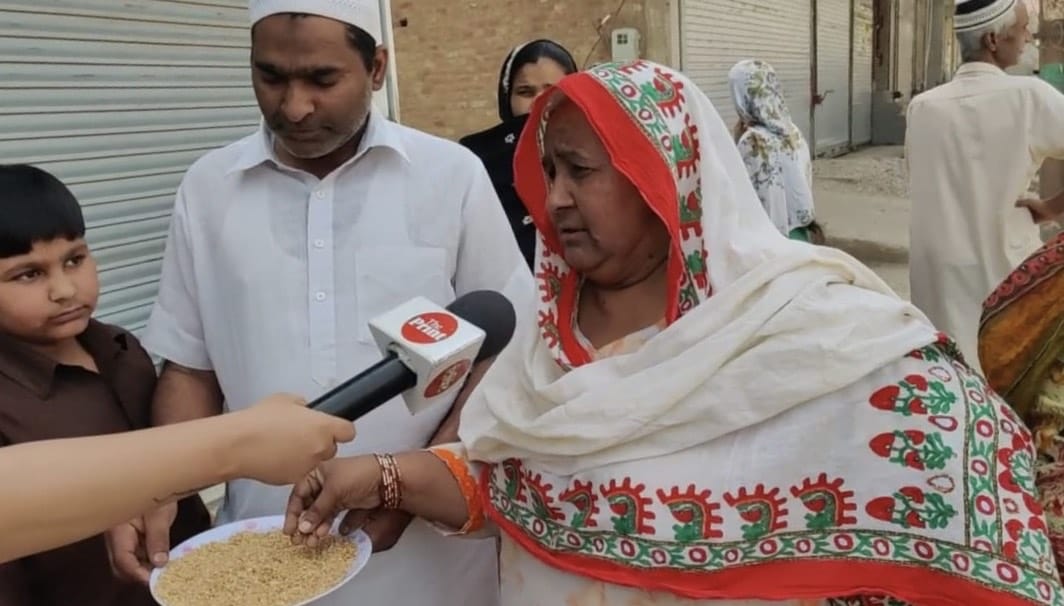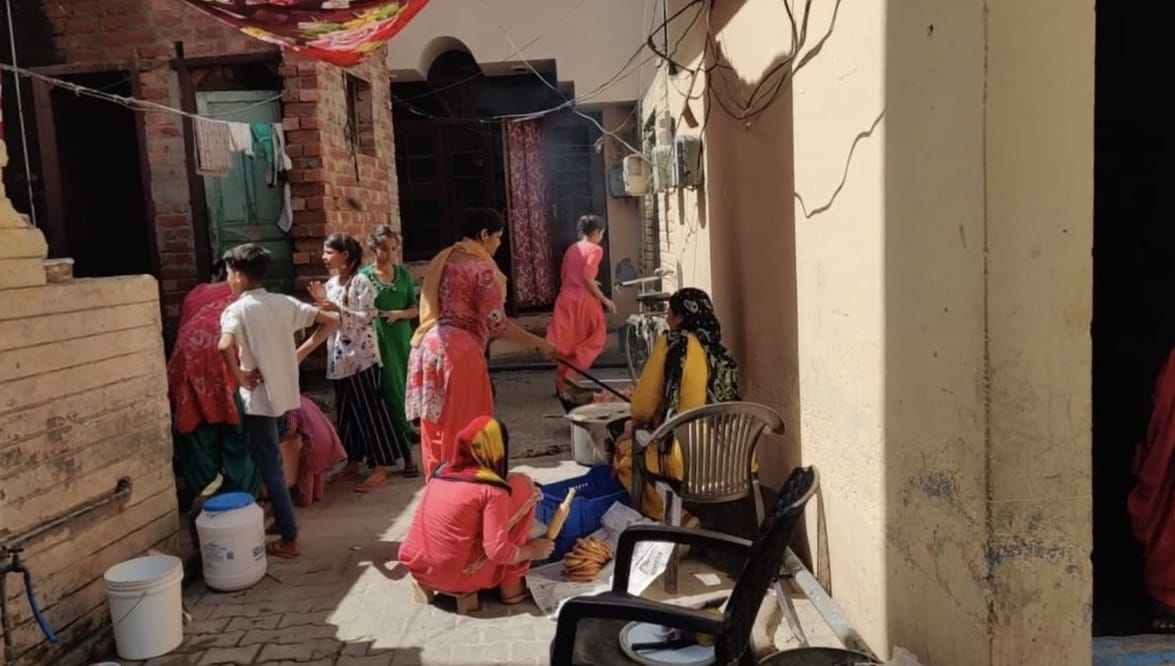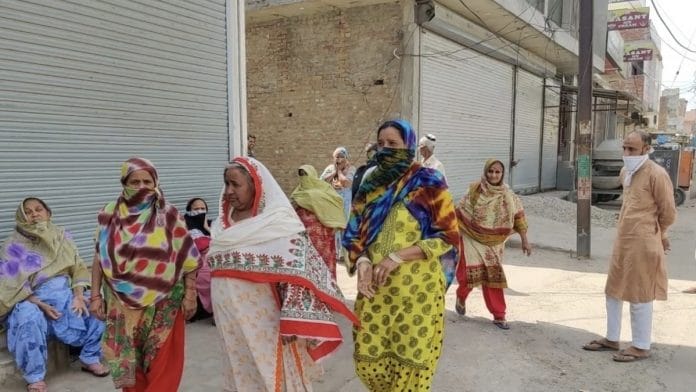Malerkotla: Nearly every Muslim in Malerkotla has a link to the controversial Tablighi Jamaat event in Delhi. But this town in Punjab’s Sangrur district isn’t as affected by the communal discourse in the rest of the country over the spread of Covid-19 as it is about the lack of rations.
A 25-year-old resident of a local village, who works at a Markaz, tested positive for Covid-19 last week after coming in touch with a Jamaat member who had stayed in Malerkotla in early March.
But the local administration in the Sangrur district city isn’t too worried about the Jamaat link for spreading the virus.
“We tested 44 people who were in his (the local’s) close contact and they all tested negative. It has not spread further and that’s great news for us,” Irtakar-ul-Hassan Kandhalvi, Mufti-e-Azam, Punjab, told ThePrint. He is the religious head of all Muslims in Punjab employed by the state government.
This is in contrast to the largely communal overtones of the public discourse around the Islamic missionary movement’s event in Delhi last month – responsible for nearly 30 per cent of the Covid-19 cases in the country as of 18 April, according to government data.
Two out of every three residents are Muslims in Malerkotla, which has a population of 1,35,424. But the town, known for its history of communal harmony, isn’t engaged in any hostility.
Pointing out that nearly all Muslims in Malerkotla have a link to the Jamaat somehow, Kandhalvi said, “Any intelligent man can understand that a virus is not communal, no matter how hard people try. It transfers from one person to another, not from a Muslim to a Hindu or vice versa.”
Several local residents also subscribed to this view. “Nothing can make the Hindus, Muslims and Sikhs of Malerkotla turn on each other. We have all been living peacefully together for the past 70 years and will continue to do so,” said a local named Sanjay Dhir.
However, while the town may not have a reaction to the Jamaat event, it isn’t immune to the woes that the virus has brought through the nationwide lockdown to control its spread.
Also read: How Punjab kept its farm economy going and brought Asia’s largest grain market back to life
‘Nothing in reality’
A couple of days after the lockdown was imposed on 24 March, the Punjab government issued an order to distribute 10 lakh packets of dry ration to daily wagers and unorganised labour in the state.
Speaking to ThePrint, most daily wage earners in the town claimed the packets — promising 10 kg atta (flour), 2 kg dal (pulses) and 2 kg of sugar each — haven’t reached them as they try to manage food without any income.
Malerkotla houses a huge number of daily wage labourers, mostly migrants, and small-scale business-persons.
Mohammed Parvez, a small businessman in the hospitality sector, told ThePrint, “There are five-six big mohallas here, but not once has anyone come here to distribute any ration. Everyone says a lot on television, but does nothing in reality.”

While the government has said essential services will continue to function amid lockdown, people in the town have no money to buy food.
Parvez said he has been feeding himself and his limited workforce with his savings.
Rafi, a small dyer in the surrounding areas of Kamal Cinema road, hasn’t received any help either. “Not even Re 1 has come to us,” he said, raising his hands to show how they don’t stop shaking. He expressed fears over facing a depressive episode with no work and no income.
‘Government’s job to provide for us’
While the Punjab government has made its relief package available at the deputy commissioner’s office and helpline numbers are active, most daily wage earners in Malerkotla didn’t seem aware of this.
However, some migrant labourers in the neighbourhood have received ration, albeit of “inedible” quality.
“It is the government’s job to provide for us. Whatever little ration they have sent us, cannot be consumed as the husk is still on – this is meant for birds,” said a woman named Bina Rani, as she held out a plate full of wheat grains.

Rani was among a group of migrant daily wage earning women ThePrint spoke to in the neighbourhood. All of them said they were surviving on savings amid the lockdown uncertainties, but even this was nearly exhausted.
Forced to come out on the streets in search of food, they have found support from around 10 local women who have come together to start a makeshift midday meal system for daily wage workers left without food or money. The system, providing one full meal a day, is working on money pooled from within the local community.
“We saw these women sitting outside with no food, so we thought of helping them out,” said one of the women engaged in the midday meal system.

Speaking to ThePrint, Beant Kinger, municipal councillor ward 25 in Malerkotla, said the town is not “well-off”.
“The kits are provided to us from the MLA house. Only 4,000 kits have been given for the whole city which has 33 MC (municipal council) wards and 55 villages. This is why everyone hasn’t got a lot. There is a need for ration in the public.”
However, the city’s sub-divisional magistrate Vikramjit Singh Panthey denied some of these charges. “More than 8,000 kits have been distributed. We do get a lot of complaints about people not getting food, but not all of them are genuine. But those which are genuine are helped out after being verified,” he said.
Also read: 5-day break for staff, proper kits — how Punjab hospital is handling Covid-19 in hotspot







I think the problem at Nizammuddin was NOT about religion…it is more probably because of the indifference of a group of infected people and their behaviour subsequent to the realisation that many who attended the function were potential spreaders. I see nothing communal in this premise.